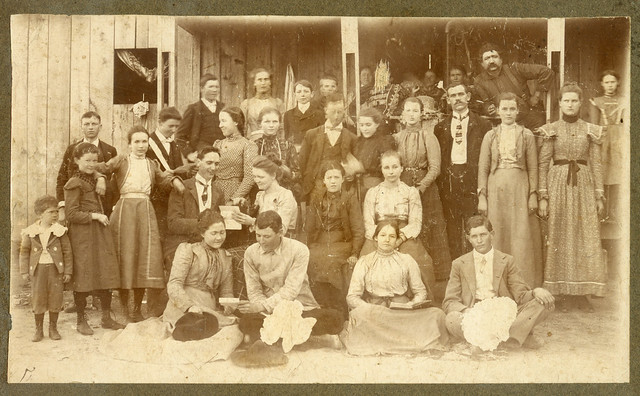Podcast: Play in new window | Download
In this episode we’re looking into words for donkey and related beasts in Celtic languages.
There don’t appear to be any Proto-Celtic words for donkey. Instead, the Celtic languages borrowed words from Latin. These include:
- asal [ˈasˠəlˠ] = ass or donkey in Irish.
- asal [asal̪ˠ] = ass or donkey in Scottish Gaelic
- assyl = ass or donkey in Manx
- asyn [ˈasɨ̞n / ˈasɪn] = (male) donkey / (he-)ass, or an absurd or stubborn person in Welsh
- asen = ass or donkey in Cornish
- azen = donkey in Breton [source]
The Brythonic words come from the Latin asina from asinus (donkey, ass), which is of unknown origin [source]. The Goidelic words come from the same root via the Latin asellus (young ass, donkey) [source].
The English word ass (donkey) was borrowed from an old Brythonic language, via the Middle English asse (ass, donkey) and the Old English assa and assen (she-ass) [source].
Other words from the same Latin roots include asinine (foolish, obstinate, donkeyish), asinicide (the killing of an idiot) in English [source], osel (donkey, ass, stupid person) in Czech, and osioł (male donkey) in Polish [source].
Incidentally, another word for donkey in Old English was esol [ˈe.zol], which came from Proto-West Germanic *asil (donkey), from Latin asellus (young ass, donkey) [source]. Related words in other Germanic languages include ezel (donkey, ass, fool, idiot, easel) in Dutch, Esel (ass, donkey, a stupid/stubborn person) in German, and æsel (ass, donkey) in Danish [source].
The English word easel also comes from the same roots, via Dutch ezel and Proto-West Germanic *asil [source].
Radio Omniglot podcasts are brought to you in association with Blubrry Podcast Hosting, a great place to host your podcasts. Get your first month free with the promo code omniglot.
You can find more details of these words on the Celtiadur blog. I also write about words, etymology and other language-related topics on the Omniglot Blog.










